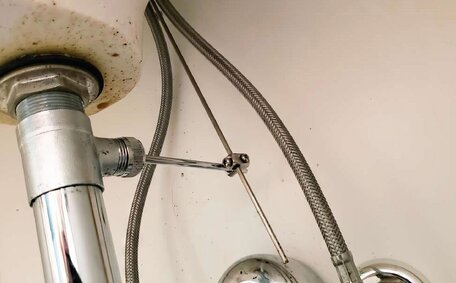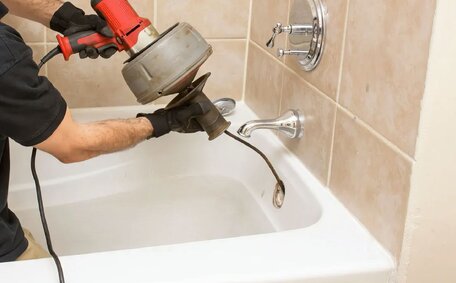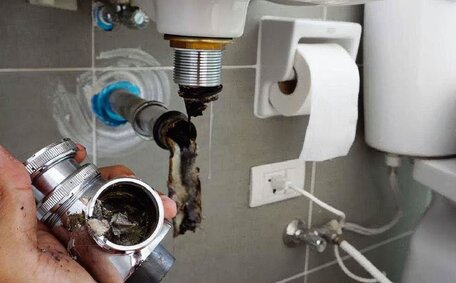Identifying Old and Outdated Gas Appliances
There are a few key signs that indicate when a gas appliance is getting too old or outdated and may need replacing:
- A gas cooker over a decade old may be due for a replacement, as its average lifespan ranges from 8 to 12 years.
- Decreased efficiency, such as a gas stove or heater taking longer to function effectively, indicates a need for an assessment.
- Visible damage like rust, dents, or faulty components suggests the appliance requires attention.
- The smell of gas or evidence of leaks from components warrants immediate professional inspection.
- Outdated appliances without modern safety features, including auto-shutoff, should be considered for upgrade.
- Consider replacing your appliance if repairs become costly or it surpasses its functional lifespan.
- Newer models are significantly more energy efficient - upgrading can reduce gas usage.
- Upgrading to appliances with contemporary features, such as Wi-Fi connectivity or digital controls, might be beneficial.
Consulting a licensed gasfitter to inspect older gas appliances can determine if they’re safe for continued use or if replacement would be the wise option.
Safety and Environmental Hazards of Old Gas Appliances
Proper disposal of old and malfunctioning gas appliances is critical to prevent safety hazards and environmental risks, including the serious threat of gas leaks leading to explosions and health dangers. Additionally, these appliances can emit greenhouse gases and ozone-depleting substances over time.
Refrigerants and insulation foam used in old fridges, heat pumps and your air conditioners, as well as other appliances like washing machines, also gradually leak out over time if not disposed of correctly.
These contribute to global warming and damage the ozone layer, infringing on the sustainability of your business and the health of our planet. Specifically, any remaining gas leaks can lead to loss of consciousness, serious injury or even death through asphyxiation or explosions/fires.
On top of that, Older appliances are often highly energy inefficient, unnecessarily increasing gas consumption and emissions, resulting in higher bills. Small leaks, if detected at a test station, indicate remaining gas in the system and can result in wasted gas and higher costs.
Recycling responsibly and upgrading to eco-friendlier stoves and heaters reduces safety risks and environmental impact. Always use a licenced technician to decommission/degas appliances and ensure your empty hazardous materials are managed safely prior to responsible recycling or disposal.
Proper Decommissioning Procedures
It is crucial that decommissioning and degassing of old gas appliances maintains gas safety and is performed by qualified professionals to ensure overall safety. Some key steps include:
- The first thing to do is ensure to turn off gas at the supply point at the isolation valves and gas metre.
- Disconnecting and removing your appliance from gas lines and venting systems.
- Removing and safely disposing of your tank or lpg cylinders attached to appliances like BBQs.
- Capping off the cylinder valve and the gas line as part of the gas cylinder disposal process so no leaks occur.
- Removing parts which can be recycled, like metals.
- Extracting all hazardous materials like refrigerants, insulation foam, oils etc. so they can be appropriately disposed of.
- Providing a decommissioning certificate stating the unit is ready for recycling collection or disposal after you remove your gas appliance.
Our licensed technicians adhere to all legal and environmental regulations when removing old gas appliances from residential and commercial properties. We safely remove and dispose of your unwanted hazardous substances, provide conformance paperwork, and can also install new energy-efficient replacements if required.
Finding Local Disposal and Recycling Options
There are a few options to responsibly dispose of and recycle old gas appliances in the Sans Souci and greater Sydney area:
- The Rockdale City Council conducts regular waste collection events for disposing of white goods, including old fridges, dryers, and air conditioning units. Contact them to dispose of your devices and find out more about dates and drop-off locations.
- Retailers such as Appliances Online and The Good Guys provide take-back programmes for electronics, including recycling services when you buy a replacement. They ensure responsible recycling of materials such as metals and plastics from your own appliances.
- Commercial recycling firms, including SIMS E-Recycling, operate in Sydney to provide specialised recycling services for a range of household and business waste. They can dismantle appliances and maximise recovery of materials.
- Our plumbers can assist in the safe and sustainable recycling of old appliances by facilitating professional decommissioning, de-gassing and lawful disposal through established recyclers.
When selecting any recycling or disposal service, always check they can legally and responsibly handle old gas appliances. As industry experts, we encourage you to seek advice for the optimal solution to recycle your old gas appliances.
Utilizing Retailer Take-Back Schemes
It is risky to trust uncertified disposal services, hence the reassurance of using take-back schemes from major appliance retailers to dispose of old gas appliances. like Harvey Norman, The Good Guys, Appliances Online and JB Hi-Fi when you purchase replacement products from them. This means that when buying new appliances, such as your cooker, heater or stovetop, you can arrange for the retailer to collect your old appliance free of charge.
These retailer schemes ensure safe, legal, and environmentally considerate disposal, recycling metals and plastics. Retailers work with specialist recycling partners to decommission items, particularly old gas heaters, remove all hazardous materials like gases or refrigerants, and recover usable metals, plastics and parts for recycling.
To take advantage of these schemes, check if take-back is included free when purchasing your new gas appliance. Utilising these services means you avoid the hassle and can take your appliances to waste facilities without worry.
Safely Preparing Appliances for Transportation
When preparing old gas appliances for transportation to a recycling or waste facility, safety should be the top priority. We recommend seeking professional assistance to rid old appliances, as there are risks involved.
Some key tips include:
- Ensure that appliances are fully degassed by qualified technicians, thus containing no hazardous gases prior to their transportation.
- Verify that appliances have been certified as safe for transport following the degassing process.
- Carefully loading appliances into your vehicle, ensuring never put them in positions where they could cause damage or leaks. Appliances should be kept upright where possible and secured firmly.
- Covering appliances with tarpaulins or strapping them to pallets if necessary to prevent shifting during transportation and protect from direct sunlight.
- Clearly labelling any appliances that previously contained hazardous substances.
- Transporting fridges and air conditioner units on their backs instead of upright to avoid oil leaks.
- Making sure to never manually handle, open, drop or damage sealed components containing refrigerant gases.
- Never leave gas appliances unchecked and always be prepared to respond safely in the unlikely event that any gas leaks do occur during transportation.
Being vigilant and utilising professional waste transport operators versed in handling degassed appliances will ensure safe and incident-free removal to legitimate recycling facilities.
Following Regulations and Best Practices
When disposing of gas appliances in Sydney, there are important regulations and best practises to follow:
Regulations
- NSW EPA Waste Regulations mandate removal of hazardous substances such as gases and refrigerants by certified technicians before disposal. Penalties apply for incorrect disposal of old gas cylinders and for other old gas appliances such as gas cookers and equipment.
- It is illegal to dump unwanted gas canisters, improperly dispose of gas cylinders, or place e-waste in household bins - proper recycling or gas cylinder disposal services must be used.
- For apartment dwellers, strata rules necessitate disconnecting gas supplies by accredited professionals before appliance removal.
Best Practises
- Licensed gasfitters must decommission and degas old gas appliances to ensure proper disposal prior to dismantling or transportation. This includes permanently disconnecting your gas bottle from your barbecue from gas lines.
- Clearly label any hazardous components and store them safely for specialist disposal or recycling.
- Investigate local recycling facilities that specialise in gas appliance disposal. Or make sure to follow your council’s guidelines and utilise retailer take-back schemes when replacing products.
- If transporting appliances yourself, take care - keep upright, strap down securely and handle with care to avoid leaks or damage.
Adhering to regulations helps get your old appliances processed correctly, ensuring they don’t end up in the wrong hands and that environmental impacts are minimised. Following best practises guarantees safety for yourself and waste disposal staff. Contact our team if you need assistance with responsible appliance removal or recycling.
The Environmental Benefits of Proper Disposal
Correctly recycling or disposing of outdated and ageing gas appliances has several substantial environmental benefits, including conserving natural resources and limiting landfill dumping. This action safeguards native ecosystems and contributes to the reduction of global warming effects.
Many old gas appliances, often categorised under white goods, include reusable materials such as metal, plastic, and other components which can be recycled rather than discarded as waste. Stoves and cylinders, for instance, comprise more than 50% recyclable mild steel. Extracting and reusing these metals saves mining and manufacturing resources.
Safely managing gases, refrigerants, and foams prevents atmospheric release, thus protecting the ozone layer and reducing climate impacts. Modern appliances also tend to be far more energy efficient, saving gas usage.
Proper processing of hazardous materials through specialist channels prevents land and water contamination that can result from landfill dumping. Follow proper appliance recycling programmes to prevent very harmful environmental consequences and to conserve limited natural capital.






